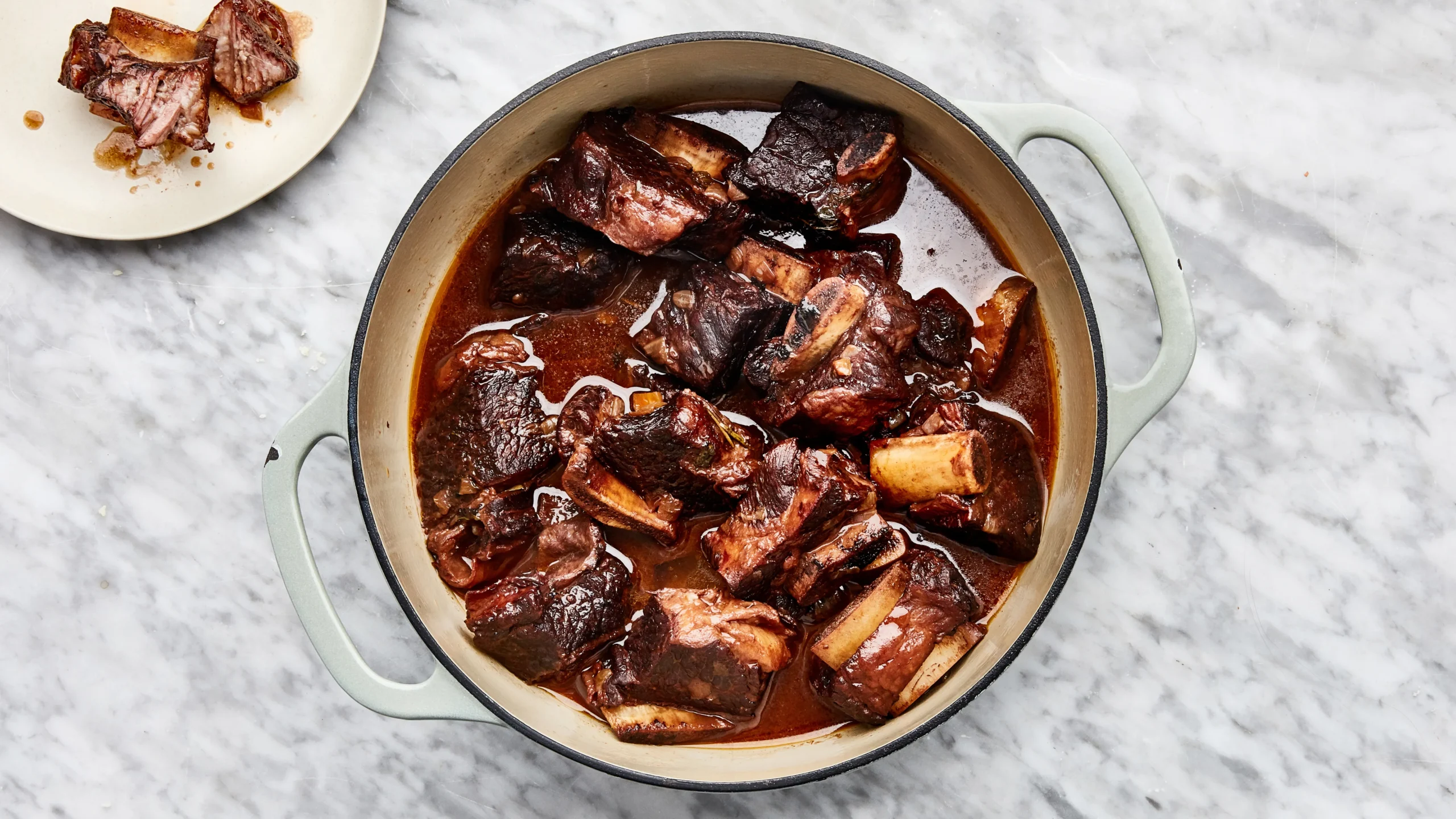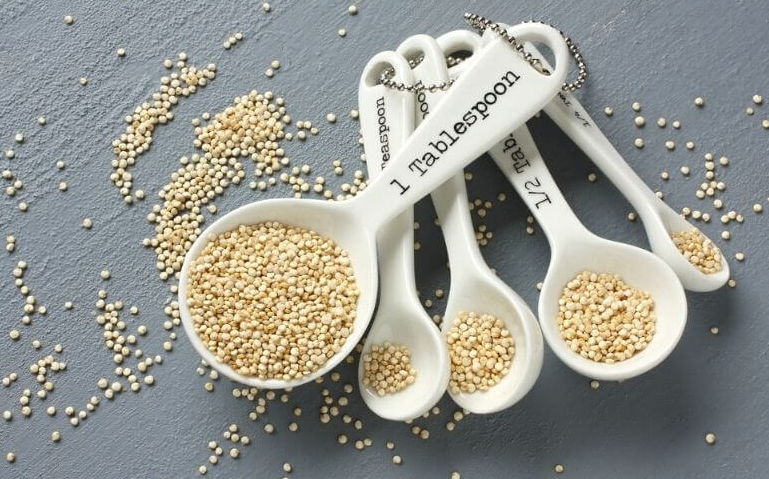Red potatoes are an incredibly nutritious vegetable that can be used in a variety of ways to add flavor, texture and nutrients to any meal. They have been cultivated since ancient times and are seen as an important crop all over the world. Not only do they have excellent nutritional value but red potatoes also bring color, vibrancy and deliciousness to the table. In this blog post we’ll explore everything you need to know about red potato nutrition including what makes them so nutrient dense, their health benefits and how best to prepare them for maximum benefit!
Red potatoes nutrition. Learn about the many health of red potatoes. Tasty, versatile and packed with important vitamins, minerals and antioxidants.

Red potatoes nutrition
Red Potatoes
Are an excellent source of nutrition, offering a wide variety of vitamins and minerals. Red potatoes are rich in potassium and contain substantial amounts of iron, calcium, magnesium, phosphorus, zinc, copper, manganese and selenium. Red potatoes are also a good source of dietary fiber with about 4 grams per 3 1/2 ounce serving. Red potatoes boast vitamins A and C as well as the B-complex vitamins thiamin and niacin. Red Potatoes provide Vitamin E along with several carotenoids including lutein which has antioxidant properties.
Red Potatoes contain beneficial phytonutrients such as anthocyanins which give them their distinctive red color. Red Potatoes can be boiled, mashed or baked and still retain their nutritional value. Red Potatoes are also a great source of carbohydrates and provide energy for the body to use throughout the day. Red Potato nutrition is an essential part of any healthy diet, so make sure to add Red Potatoes to your meals!
Red Potatoes are an incredibly versatile vegetable, making them ideal for adding to a variety of dishes. Red potatoes can be baked, boiled, mashed, or fried and still keep their nutritional values intact. Red potatoes can easily be included in any meal as they pair well with numerous proteins such as fish, chicken or pork, while also providing some carbohydrates that will help you stay energized throughout the day.
Red potato nutrition is all about vitamins and minerals such as potassium, iron, calcium, magnesium, phosphorus, zinc, copper and other essential nutrients. Red potatoes also provide dietary fiber that aids digestion and can help protect against cardiovascular disease. Red Potatoes are an ideal way to get your daily intake of vitamins and minerals while providing a tasty addition to any meal!
When you’re looking to add Red Potatoes to your diet, make sure to look for potatoes that are firm with no bruises or sprouts. Red potatoes should be stored in a cool dry place away from direct sunlight and heat sources such as radiators or stoves.
Red Potatoes will keep up to two weeks if stored properly, but it is best to use them soon after purchase for optimal nutrition and flavor. Red Potato nutrition offers numerous benefits when incorporated into a healthy diet, so make sure to add Red Potatoes to your meals!
Red potatoes can provide essential nutrition and flavor when incorporated into any meal. Red Potato nutrition is full of vitamins and minerals such as potassium, iron, calcium, magnesium, phosphorus and zinc that are important for staying energized throughout the day.
Red potatoes are also an excellent source of dietary fiber which aids digestion and helps protect against cardiovascular disease. Red Potatoes have a distinctive taste and color from their anthocyanin content that makes them ideal for adding some extra flavor to any dish.
Picked For You: 4 ingredient potato soup
Red potatoes nutrition
Is an essential part of a healthy diet, so make sure to add Red Potatoes to your meals! Red potatoes are incredibly versatile and can be boiled, mashed, baked or fried while still retaining their nutritional value. Red Potatoes offer numerous vitamins, minerals and dietary fiber that are all important for maintaining good health.
Red Potato nutrition is easy to incorporate into any meal thanks to their great taste and texture. Red potatoes will provide essential nutrition and flavor when added to any dish making them an ideal addition to anyone’s diet. So don’t forget Red Potatoes when you’re looking for some nutritious additions to your meals!
1. Enhanced energy
Red potatoes have 34 grams of carbohydrates. Of these grams of carbohydrates, three are made up of dietary fiber.
You can feel fuller for longer after eating thanks to fiber, which also aids in digestion, avoids constipation and diarrhea, and perhaps lowers cholesterol and blood sugar.
How might eating red potatoes give you extra energy? Easy! All you need to do is consume them correctly. When boiled, baked, or steamed, potatoes are an excellent source of vitamins and complex carbs for our bodies. That will give you the energy you need to perform at your best.
Complex carbohydrates, like those found in potatoes, can keep you full all day without having any bad consequences.
They include fiber, which guarantees a steady release of energy and enables you to get the most out of your meal and truly feel satisfied.
Starches provide for the majority of the remaining carbs in red potatoes. Although potatoes are a vegetable, their high carbohydrate content classifies them.
If you’re on a low-carb diet or have diabetes, watch your portion size to prevent consuming too many carbohydrates.
2. Immunity booster
One red potato has the potential to significantly boost your immune system. The importance of vitamin C for the body’s defense system is widely known. You can be certain that the potato will protect you from viruses because it contains a lot of this nutrient.
Potatoes contain 45% of the recommended daily intake of vitamin C. The majority of the fiber in a red potato is found in the shell, while the inside is stuffed with vitamin C.
Because it contains antioxidants and aids in body tissue regeneration, this mineral is essential for maintaining overall health.
This contains more vitamin C than a tomato does. Roasted potato with fresh tomatoes and a touch of basil, however, sounds amazing.
In addition to the vitamin, red potatoes also contain zinc and copper, which provide an additional defense against microscopic threats.
One tuber may contain about 0.7 mg of zinc and 450 mcg of copper, or about 6 percent and 31 percent RDA, respectively.
3. Naturally free of fat
Common potatoes have a bad reputation because of the different ways they can be prepared or topped. Red potatoes naturally have a buttery taste and a luscious texture.
When red potatoes are boiled, roasted, or baked with fresh herbs and vegetables, they remain delicious and fat-free.
4. Help with losing weight
Increased fiber consumption lowers weight and fat, according to research. Red potatoes are quite good at helping you keep your weight under control.
You feel less hungry when you consume fiber, which may encourage you to eat less, therefore assisting you in losing weight.
Additionally, the hormone cholecystokinin, which is responsible for making you feel full, is stimulated by a protein called proteinase inhibitor 2 that can be found in potatoes. But there’s more!
Red potato peel is a good source of fiber. One medium roasted red potato contains 3 grams of fiber, which is crucial for controlling cravings. Additionally, they include more than 3 grams of protein, which, like fiber, helps you resist hunger.
According to this article in the journal Nutrition Reviews, found that eating more than 14 grams of fiber for longer than two days was linked to a 10% reduction in overall caloric intake and a 4-pound weight loss in the months. Red potatoes can therefore help you lose weight rather than hinder your efforts.

Help with losing weight- Red Potato Salad
5. Vegetable consumption increased overall
Consuming potatoes rich in vitamin C, potassium, and beta-carotene can help reduce the risk of cardiovascular disease and stroke.
Potatoes also contain a type of carbohydrate called resistant starch, which helps maintain a healthy digestive system by promoting the growth of good bacteria in the gut.
6. Stress reduction
Vitamin B6 is found in at least 10 percent of the recommended daily intake of potatoes. A healthy nervous system and a balanced mood all depend on this vitamin.
Red potatoes provide numerous health benefits, including this vitamin, and protection against disease, making them a great addition to any diet. Roasting or baking red potatoes is the best way to get the most B6 out of them.
7. Maintaining a healthy blood pressure
Maintaining a healthy blood pressure level is a major matter. For this reason, red-skinned potatoes are great. They contain less than 14 mg of sodium, which is less than 1% of the required daily amount.
In addition, they are one of the best potassium suppliers. Known as a vasodilator, this mineral allows blood arteries to widen, resulting in a smoother flow of blood.
You should ingest about 25 percent of your recommended daily potassium intake in a potato, which is more than double the amount of potassium contained in a banana.
However, things improve. Potatoes have a lot of fiber, which traps cholesterol molecules in your bloodstream and reduces the strain on your arteries.
If you need to reduce high blood pressure, you should consume more red potatoes. 943 mg of potassium are found in one medium roasted red potato.
According to the Dietary Guidelines for Americans 2010, eating extra potassium lowers the effects of salt and may help lower blood pressure.
The guidelines also state that most Americans do not consume the recommended 4,700 mg poof potassium per day.
8. Boost antioxidant production
Vitamin C, which concentrate in the redskins, can form a powerful barrier that may neutralize free radicals and keep you in good health. This barrier can also be generated by red peels, which are rich in phenolic acids.
You may have already guessed it, but free radicals are a formidable foe for the red tuber, which is a powerful ally in the fight against them.
They are byproducts of the normal metabolic processes that take place in your body and are produced whenever you engage in any activity, including breathing, working out, and even eating.
These unstable atoms link themselves to your cells, which weakens them and makes them more susceptible to getting sick and aging more quickly.
In addition, once radicals have accumulated, they can cause a variety of dangerous diseases and disorders in the body. That is something nobody wants.
9. Keeps you satisfied
One serving size of a medium red potato has 3 grams of dietary fiber when the skin is included. No matter how they are prepared, red potatoes can be eaten with their skins on, which is where the vast majority of the vegetable’s fiber is found.
This makes them an excellent source of fiber. In addition to improving intestinal health, this is a benefit of eating potatoes since the fiber gives them substance, which makes you feel fuller for a longer period.
The quantity of fiber that is present in potatoes is comparable to the amount of fiber that is found in several whole wheat pieces of bread, pasta, and cereals.
10. Best blood maker
Red potatoes may help you produce more hemoglobin by increasing the production of red blood cells. They can help you produce more hemoglobin by increasing your blood’s iron concentration, which is roughly 1.2 milligrams or 6% of the necessary value. Better health is a result of having more oxygen around the body.
Another benefit of including potatoes in your diet is their higher vitamin content, which is around 27 milligrams 30% of the daily recommended intake. Potassium-rich red potatoes, low in sodium, are an important part of a balanced diet.
Red Potato Benefits
For athletes, the benefits of red potatoes are even more impressive. Red potatoes contain a unique type of carbohydrate called resistant starch. This starch is not easily digested and acts as an energy reservoir that helps your muscles work harder and longer without becoming exhausted.
In addition, they are rich in antioxidants like vitamin C, which help protect the body from oxidative damage caused by intense exercise. Red potatoes also provide electrolytes like magnesium and potassium to help maintain hydration levels during workouts. Red potatoes may even reduce inflammation and improve heart health during physical activity.
Cooking with Red Potatoes
Red potatoes are a versatile ingredient that can be used in a variety of dishes. Red potato recipes range from classic mashed potatoes to more unique creations like Red Potato and Feta Salad or Red Potato Gnocchi with Brown Butter Sage Sauce. Red potatoes can also be boiled, roasted, grilled, fried, and baked for an array of delicious meals.
No matter how you decide to prepare them, the health benefits of red potatoes make them an excellent addition to any meal. Eating Red Potatoes regularly is one way to ensure that you’re getting essential vitamins and minerals while enjoying a flavorful side dish. Red Potatoes provide a wealth of nutritional benefits and should be included as part of any balanced diet.

Cooking with Red Potatoes
Conclusion: Red potatoes nutrition
Is an excellent source of vitamins and minerals, including vitamin C, potassium, magnesium, and dietary fiber. Red potatoes are also rich in antioxidants, which help protect the body from oxidative damage caused by intense exercise. Red potatoes can be boiled, roasted, grilled, fried, and baked for a variety of delicious meals. Red Potatoes are a great addition to any meal and provide many health benefits that make them an important part of any balanced diet.
FAQ: Red potatoes nutrition
What Is The Distinction Between White And Red Potatoes?
Red potatoes are slightly sweeter than white potatoes and also contain more vitamins and minerals, including vitamin C, potassium, magnesium, and dietary fiber. Red potatoes also have a higher antioxidant content
Is It True That Red Potatoes Are Healthier Than Sweet Potatoes?
Red potatoes are more nutritious than sweet potatoes, providing more essential vitamins and minerals. Red potatoes contain more fiber per serving as well as higher amounts of vitamin C and potassium. Red Potatoes also contain a unique type of carbohydrate called resistant starch, which is not easily digested and acts as an energy reservoir that helps your muscles work harder and longer without becoming exhausted. Sweet potatoes, on the other hand, are higher in natural sugars and provide fewer vitamins and minerals than Red Potatoes.
Are Red Potatoes Good For Weight Loss?
Red potatoes can be part of a healthy weight loss diet as they contain fewer calories than white potatoes and are also high in fiber, which helps keep you full for longer. Red Potatoes also contain resistant starch, which helps to regulate your blood sugar levels and reduce cravings. Red Potatoes are a great addition to any diet as they provide essential vitamins and minerals while helping you maintain a healthy weight.
Are Red Potatoes Suitable For Boiling?
Red Potatoes are perfect for boiling as they retain their shape and form after cooking. Boiling Red Potatoes helps to preserve the nutrients while bringing out their earthy flavor. Red Potatoes can also be boiled and mashed or added to soups and stews.
Can Red Potatoes Be Eaten Raw?
Red potatoes should not be eaten raw as they contain a high level of starch, which can be difficult to digest. Red Potatoes should always be cooked before eating to maximize their nutritional benefits and ensure that the starch is more easily digested. Red potatoes can also be enjoyed in salads and slaws if they are boiled or grilled first.
Is It Possible To Lose Weight By Eating Red Potatoes?
Red potatoes can be part of a healthy weight loss diet as they are low in calories and contain a high level of dietary fiber, which helps keep you feeling fuller for longer. Red Potatoes are also rich in vitamins and minerals, which help to boost your metabolism and regulate your blood sugar levels.
Are red potatoes anti-inflammatory?
Red potatoes contain antioxidants and anti-inflammatory compounds that can help reduce inflammation in the body. Red Potatoes are also high in fiber which helps regulate digestion, lower blood pressure and reduce cholesterol levels. Red Potatoes can be an important part of an anti-inflammatory diet.
Are Red Potatoes gluten-free?
Yes, Red Potatoes are naturally gluten-free. Red potatoes contain no wheat, rye, or barley and so can be enjoyed by anyone following a gluten-free diet. Red Potatoes are also an excellent source of fiber and vitamins and minerals which help to support a healthy immune system.
Do Red Potatoes Contain Carbs?
Yes, Red Potatoes contain carbohydrates, which are the body’s main source of energy. Red Potatoes provide complex carbohydrates that are slowly digested and released over time, providing a steady supply of energy throughout the day. Red Potatoes also contain resistant starch, which helps regulate your blood sugar levels and reduce cravings.
Are red potatoes good for diabetics?
Red potatoes can be a healthy choice for people with diabetes as they contain fewer calories and carbohydrates than white or yellow potatoes. Red Potatoes are also rich in fiber, which helps to regulate your blood sugar levels and reduce cravings. Red Potatoes should still be consumed in moderation, however, as they do contain carbohydrates.
Are red potatoes the healthiest?
Red potatoes are a healthy choice as they contain essential vitamins and minerals, dietary fiber, and resistant starch. Red Potatoes also have fewer calories than white or yellow potatoes which makes them a great addition to any diet. Red potatoes are an excellent source of complex carbohydrates which provide sustained energy throughout the day.
How many carbs are in 1 red potato?
One Red Potato contains approximately 15g of carbohydrates. Red Potatoes are high in fiber, which helps regulate digestion and reduce cravings. Red Potatoes also contain resistant starch, which helps to regulate your blood sugar levels. Red Potatoes should be consumed as part of a balanced diet to maximize their nutritional benefits.




















![How To Make Espresso Without A Machine? [05 Easy Methods] How To Make Espresso Without A Machine? [05 Easy Methods]](https://heartlandmiami.com/wp-content/uploads/2023/04/Benefit-of-making-espresso-without-a-machine.jpg)